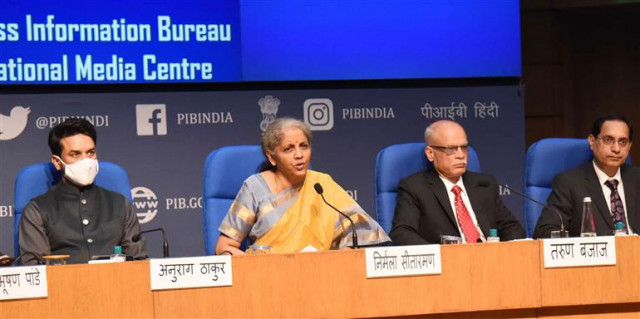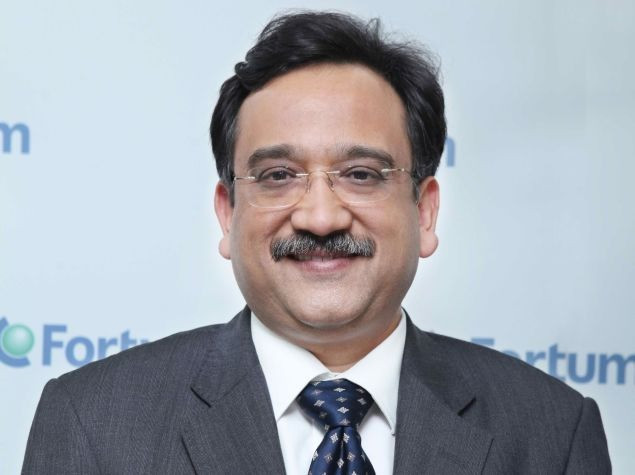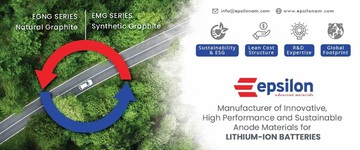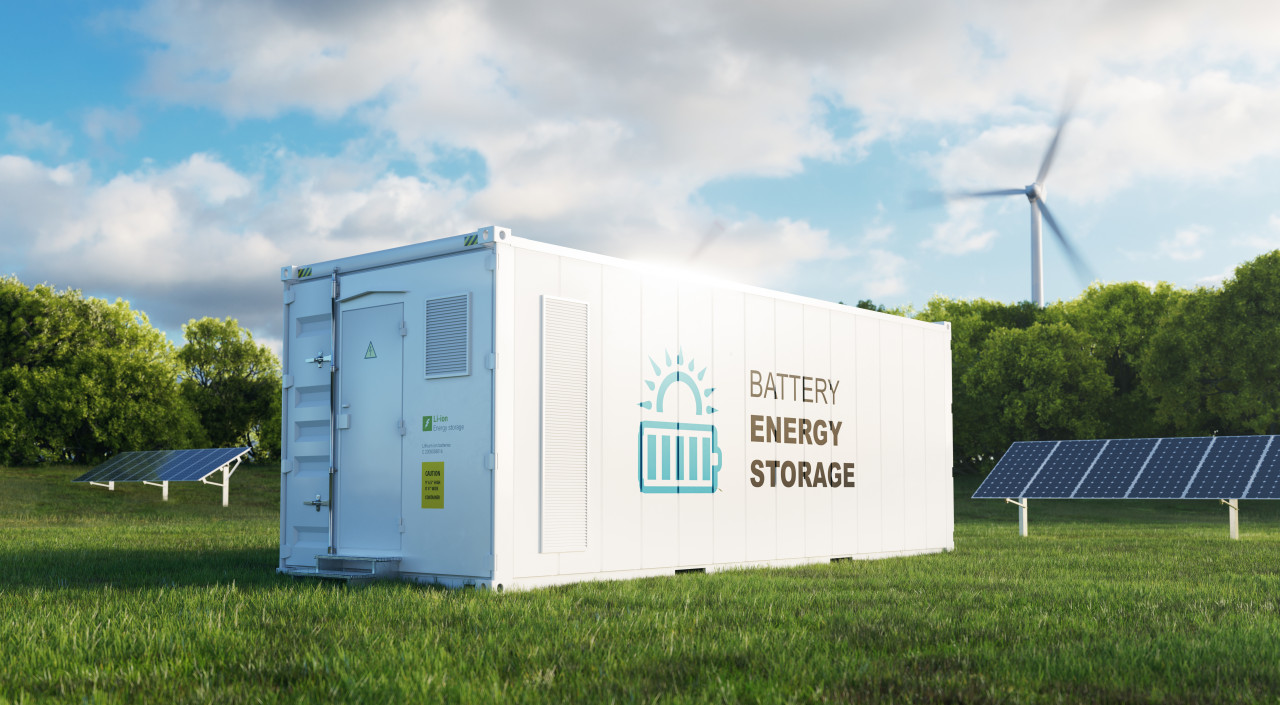Budget 2021: What’s in store for RE and EV sector
Finance Minister Nirmala Sitharaman presented the Union Budget 2021-22 in Parliament on February 1, 2021. Presenting the first-ever paperless budget, the FM expressed, "the preparation of this budget was undertaken in circumstances like never before." Speaking of making India Aatmanirbhar (self-reliant) Ms. Sitharaman noted that the budget for 2021-22 will rest on six pillars:
- Health and Wellbeing
- Physical & Financial Capital, and Infrastructure
- Inclusive Development for Aspirational India
- Reinvigorating Human Capital
- Innovation and R&D
- Minimum Government and Maximum Governance
Speaking of Swachh Bharat and Swasth Bharat, the FM said the government proposed to provide an amount of ₹2,217 crore for 42 urban centers with a million-plus population to tackle the problem of air pollution.
Vehicle Scrapping Policy
She also announced a voluntary Vehicle Scrapping Policy to phase out old and unfit vehicles. As per the policy terms, all the vehicles will have to undergo fitness tests (after 20 years in case of personal vehicles, and after 15 years in case of commercial vehicles).
"This will encourage fuel-efficient, environment-friendly vehicles, thereby reducing regular pollution and oil import bills," she underscored.
Production Linked Incentive (PLI) scheme
Speaking of the Aatmanirbhar Bharat vision and the PLI scheme, the FM noted that for a $5 trillion economy our manufacturing sector will have to record a double-digit growth on a sustained basis. To achieve this ambitious goal, the government has announced the PLI Scheme for 13 key sectors (including Advanced Chemistry Cell battery manufacturing, automobiles, and auto components) and committed ₹1.97 lakh crore for over five years starting this financial year.
"This initiative will help bring scale and size in key sectors, create and nurture global champions, and provide jobs to our youth," Ms. Sitharaman emphasized.
Power infrastructure reforms
Highlighting a need for a framework to give consumers alternatives to choose from among different distribution company, and expressing concern over the viability of the distribution companies, the FM proposed to launch a revamped reforms-based result-linked power distribution sector scheme with an outlay of ₹3,05,984 crore over five years.
The scheme will assist Discoms for infrastructure creation including pre-paid smart metering and feeder separation, upgradation of systems, etc., tied to financial improvements.
Hydrogen energy
In November 2020, PM Modi - in the 3rd Global RE-INVEST Renewable Energy Investors Meet & Expo – had announced plans of a Comprehensive National Hydrogen Energy Mission. Following this, the FM announced a proposal to launch a Hydrogen Energy Mission in 2021-22 for generating hydrogen from green power sources.
Non-conventional energy
To boost power generation from the non-conventional energy sector, the FM proposed an additional capital infusion of ₹1,000 crore to the Solar Energy Corporation of India and ₹1,500 crore to the Indian Renewable Energy Development Agency (IREDA).
"We have already acknowledged that solar energy has huge promise for India. To build up domestic capacity, we will notify a phased manufacturing plan for solar cells and solar panels," she added.
To encourage domestic production, the FM also proposed to raise duty on solar inverters from 5percent to 20 percent, and on solar lanterns from 5 percent to 15 percent.
MSMEs
FM highlighted that several steps were taken to support the MSME sector, and has provided ₹15,700 crore to this sector in this year's budget.
Innovation and R&D
The FM recalled that in her Budget Speech of July 2019, she had announced the National Research Foundation, adding that the NRF outlay will be ₹50,000 crore, over five years. It will ensure that the overall research ecosystem of the country is strengthened with a focus on identified national priority thrust areas.
Emerging Technology News magazine spoke to industry players to understand their take on the Union Budget 2021, following are some excerpts.
Guenter Butschek, CEO & MD - Tata Motors
"Budget 2021 is a progressive statement of intent and action that aims to both stimulate and sustain growth following an unprecedented year. The significant increase in overall allocation towards capital expenditure has been complemented with comprehensive measures to catalyze multiple levers - focus on rural, infrastructure investment, the impetus to manufacturing, social welfare, entrepreneurship, and digital - to enable overall holistic development.
For the automobile sector, which is a significant contributor to India's GDP, there are multiple welcome announcements including a voluntary vehicle scrapping policy to phase out old and unfit vehicles, augmenting public transport system in urban areas, continuing focus on adoption of cleaner fuels, and enhancing outlays for developing road infrastructure and expanding the Swachh Bharat Mission."
Chetan Maini, Chairman & Co-founder - SUN Mobility
"The Budget is focused on speeding up recovery post-COVID, while also providing solid direction to do so, over the next few years, which is excellent.
When it comes to e-mobility, the main expectation was a firmer commitment from a policy standpoint by the government for accelerating e-mobility and enabling charging and battery swapping infrastructure in the country for the same. One of the key measures for doing so would have been to fix the inverted duty structure for components such as batteries from 18 percent to 5 percent, and for charging/swapping infrastructure services from 18 percent to 5 percent as well. While this was not mentioned during the Budget, we look forward to the GST Council taking this up, and implementing it soon.
The announcement of the outlay of ₹18,000 crore to support the augmentation of public bus transportation services is a welcome announcement, along with the deployment of 'MetroLite' and 'MetroNeo' services for ease of mobility across Tier-2 cities and peripheral areas of Tier 1 cities. This opens up the possibilities of providing last-mile connectivity in and around these locations via electric vehicles like e-autos and e-rickshaws, provided adequate support is given by the government for setting up charging and swapping infrastructure.
Similarly, implementation of the scrappage policy is a good move, which can be further enhanced by providing additional incentives for replacing old vehicles with electric ones, instead of other ICE vehicles, for driving mass EV adoption.
The EV industry needs to not only 'Make in India', but also 'Design in India', so we look forward to the details of the ₹50,000 crore Innovation and R&D outlay that was announced today, as well as the PLI scheme and how they can benefit the sector, as these will be key enablers in making EVs take off in the country. This will help create manufacturing global champions for an Aatmanirbhar Bharat, boosting start-ups to achieving a $5 trillion economy.
Gurpratap Boparai, MD, ŠKODA AUTO Volkswagen India Pvt Ltd.
"The Union Budget for 2021-22 augers well to create capacity for development and growth in the country. Increased outlays in the road sector, infrastructure development, and the introduction of the voluntary vehicle scrappage policy will not only create a safer and environment-friendly auto sector but also drive replacement demand in the sector.
The support announced for the rural economy and farm sector will be a big boost for wealth creation in the non-urban markets and increase the scope for auto demand in these regions. While further details of the prior announced PLI scheme is awaited, the same is expected to help the Indian auto industry to improve production efficiency and become self-reliant (aatmanirbhar).
It is important to keep in mind that even in the coming financial year, the passenger vehicle market is unlikely to reach the level of 2018 and the much-required rationalization of GST and cess to aid the auto industry was missing. Additionally, the increase in customs duty on certain auto parts to 15 percent will further increase input costs and prices for cars which depend on specialized components which cannot be manufactured locally due to unviable volumes."
Kush Singh, CEO - Essar Power
"We would like to thank the government for giving due emphasis to the power sector in this year's budget 2021. In a highly anticipated move FM announced a ₹3,05,984 crore scheme to reform the power distribution sector in the country. T&D losses have plagued the power sector for some years and this scheme will surely help reduce losses and improve the efficiency of electricity distribution companies (Discoms).
The proposed amendments and Electricity (Amendment) Bill, 2021, with measures such as 'de-licensing' of the power distribution business to bring in the competition is a very consumer-centric move, which aims at creating a level playing field for all distribution companies.
The ₹1,000 crore grant for the growth of the solar energy sector and ₹1,500 crore to the renewable energy sector is also a welcome move and will help the country in achieving the ambitious target of 175 GW of renewable energy capacity by the year 2022. These measures and reforms will definitely help improve the health of the sector and enhance growth in the coming few years."
Sanjay Aggarwal, Managing Director - Fortum India
"The Union Budget announced has crucial steps to contribute towards the growth of the Indian economy. Fortum India welcomes the measures proposed by the government to address concerns related to air pollution and the promotion of the renewable energy sector. The outcome and result-based financial package of ₹3 lakh crore for Discoms is a good move. Setting up of the National Hydrogen Mission, allocation of ₹2,500 crore to SECI and IREDA, and introduction of a phased manufacturing plan for solar cells and panels will help boost the renewable energy sector, going forward.
Considering the high levels of pollution that the country has been witnessing, the FM's proposal of ₹1.41 lakh crore for the Urban Clean India Mission, ₹2,217 crore for 42 urban centres with a million-plus population for clean air, and the launch of a voluntary vehicle scrapping policy is laudable. The scheme would promote fuel-efficient and environment-friendly vehicles while cutting on India's huge import bills."
N Venu, Managing Director - Hitachi ABB Power Grids in India
"The Union Budget 2022 covered areas that will have a multiplier effect and create long-term opportunities for India and India Inc. As a player in the power industry, we appreciate the focus on capital expenditure, education and research, and bank recapitalization.
We see the ₹2,500 crore funding to promote renewables and the push for a Hydrogen Energy Mission from green power sources as good news in the long run for the power sector.
The competition in power distribution can help ensure performance-based assistance totaling ₹3 lakh crore for Discoms doesn't become redux of Uday 2.0. The industry will parallelly need to adapt to the higher duties on solar cells while also balancing the continued GST slabs.
Besides, attention on urban transportation through metro rail and city bus services can become steps towards our clean energy transition goals, if there is a greater emphasis on mass electric transportation. There was no mention of the National Electric Mobility Mission plan 2020, and the extension of capital subsidies under FAME. We were also hoping to see the inclusion of e-mobility infrastructure and other ancillary power supply chains in the PLI scheme to give the desired push to self-reliance.
Focus on building freight corridors, a record outlay for the future-ready railway systems, and electrifying 46,000 RKM by this year are much appreciated and are positive announcements for us. They will create the need for modern and reliable power infrastructure. Yet, the timeline for 100 percent electrification by December 2023 may prove challenging unless government and industry work in close collaboration."
Nishant Arya, Executive Director – JBM Group
"The allocation of ₹18,000 crore for the public bus transport services has come as a sigh of relief for the bus makers who have been caught in the doldrums from 2019. The proposed PPP model will in turn help the sector to create employment as well and overcome the adverse effect of the pandemic.
We, as an industry player, are now looking forward to the details of the vehicle scrappage scheme which will be an added advantage for the auto sector. The heavy and medium commercial vehicle sector will also have a boost in demand as a sum of ₹5.54 trillion has been allocated for infrastructure development. The 2.5-5 percent reduction in the customs duty on some of the semi-finished and finished steel products will have a positive impact on the automotive industry.
The solar sector is now awaiting notification on phased manufacturing for solar cells and solar panels. The increased custom duty on solar inverters, solar lanterns/lamps from 5 percent to 20 percent and 15 percent respectively will encourage domestic production which is the need of the hour to fulfill the dream of Aatmanirbhar Bharat.
The government's thrust towards green energy generation has further been consolidated and initiatives such as SATAT aimed towards setting up biogas projects will see speedy deployment."
Deepak Pahwa, Managing Director - Bry-Air (Asia)
"The Union Budget 2021 stands up to the challenges put up in the pre-and post-COVID world and gives preference to economic growth. The budget has pushed a substantial increase in expenditure to bolster the infrastructure sector growth in India. This in turn will show significant results soon and create employment opportunities. The roadmap presented for the healthcare and infrastructural sector will revitalize the economy and bolster growth.
The automobile industry is the number one sector in the country and will continue to be one. The FM has already increased the taxes on the imported automobile components. So, naturally, the 'Make in India' movements will get a boost and it is going to create more employment potential and add to growth in our country.
The old vehicle scrappage policy will lead to a boost in demand for new cars. This step will help the automotive industry bounce back after witnessing a significant down in the revenue sheets. The government has taken a strong decision to hike the basic customs duty on certain auto components as this measure will encourage local manufacturing in India.
Also, the announcement for the adoption of solar energy in multiple sectors will definitely open new business opportunities and will help India in faster adoption.
The FM has not tinkered around with corporate taxation, which will lead to improved business earnings for corporates. Also, tax-payers were awaiting some kind of rebate in ITR but, it was given a miss. Nevertheless, it's good that the government has not played with tax slabs otherwise it would have sent negative sentiments among tax-payers. Buyers will have money in their pocket to spend, which will lead to an increase in demand and thereby stabilize the economy. Monetization of Assets and Disinvestment will provide time to the industry to recover from the global slowdown. The Union Budget FY 21-22 has brought a ray of hope to energize and strengthen the economy."
Siddharth R Mayur, Founder & CEO - h2e Power Systems
"It is motivating to see that our government is focused on climate crises and is giving impetus to fuel cell and alternate fuel sector with the National Hydrogen Energy Mission. We welcome this initiative - the generous allotment given to the renewable energy sector. It shows the seriousness of our government towards climate change.
Taking a cue from other regions across the world, driving change and encouraging the green hydrogen sector via various policies, the Indian government is well set on the path to establishing a leadership position in green hydrogen, just as we did with the International Solar Alliance under the dynamic leadership of the Honourable Prime Minister."
Prabhajit Kumar Sarkar, MD & CEO – Power Exchange India Limited (PXIL)
"The Union Budget for 2021-22 has given a big push to the power sector by announcing close to ₹3.06 lakh crore power distribution sector scheme. We welcome this move as it is expected to assist Discoms for infrastructure creation tied to financial improvements, including prepaid smart metering, feeder separation, and up-gradation of systems. Additionally, the government's proposed framework to give consumers more than one Discom choice was a much-needed move. It will help to enhance efficiency in the power distribution sector, induce fair competition, and address the monopoly business of Discoms.
Besides, we foresee that reforms such as ₹1,500 crore allocation for the renewable energy sector, 100 percent Railway electrification and expansion of metro rail networks, and hydrogen energy mission for generating hydrogen out of green-powered sources will contribute significantly to enhancing the country's power demand."
Inderveer Singh, Founder & CEO - EVage
"As a four-wheeler commercial EV manufacturer, we at EVage welcome the steps the government has taken with the new scrappage policy as it will help accelerate the EV adoption in India; and the boost to road infrastructure, which will, in turn, enhance consumption pattern and increase disposable income.
Lastly, the increase in customs duty to 15 percent will facilitate indigenizing auto components manufacturing, enhance job creation and tech capabilities in India. Along with these positive measures, we were hoping that the government would also induct the EV sector as a priority lending sector."
R. Mukundan, Managing Director & CEO - Tata Chemicals
"The first budget of the new decade has ensured the right balance of sustainable growth, social equity, and long-term competitiveness of the Indian economy.
The continued support of manufacturing with the Productivity Linked Incentive (PLI) Scheme will further strengthen the Aatmanirbhar Bharat Mission to help the country integrate more strongly with the global supply chain. The PLI scheme coupled with duty rationalization of inputs especially naphtha will bode well for value-added products and specialty chemicals. Also, the start of the hydrogen economy is a welcome step.
The proposed step to create more stability in the tax regime is a welcome move. This, combined with simplification and a further improvement in the dispute resolution process, will augur well for tax compliance and increase resource mobilization.
All in all, a balanced approach to resource mobilization, stability in taxation and focused sectoral steps to spur manufacturing growth will ensure that we come out of this pandemic stronger and more competitive."
Industry body welcomes announcements on hydrogen, PLI scheme, and microgrids
Commenting on the announcement of vehicle scrappage policy, Dr. Rahul Walawalkar, President - India Energy Storage Alliance (IESA) said: "This is a great opportunity and a welcome step."
IESA is India's only industry alliance focused on the advancement of advanced energy storage, and e-mobility technologies in the country.
Applauding the decision on Hydrogen Energy Mission, Dr. Walawalkar added that "advanced chemistry cell battery manufacturing mission and hydrogen mission together can enable India to fast-track decolonization of the grid, industrial sector, and transportation sector in the coming decade."
On MSMEs and rural infrastructure development, Dr. Walawalkar noted that the allocation of the Rural Infrastructure Development Fund from ₹30,000 crore to ₹40,000 crore has been a step in the right direction.
"We are confident that energy storage and microgrids have the potential to transform not just India's electric grid in next the 5-10 years, but also to help advance energy access challenges around the globe," Dr. Walawalkar said.
While IESA applauds the influx of funds in the MSME sector, Dr. Walawalkar mentioned that there is a need for an infrastructure fund dedicated to the rural.
IESA recommendations to FM for EVs and ES sector
The India Energy Storage Alliance (IESA) wrote a recommendation letter after garnering views from several industry members operating in the electric vehicle and energy storage sector in India. In the recommendations to Finance Minister Nirmala Sitharaman, IESA urged the government to reduce GST for batteries and charging/swapping, suggesting to keep it at 5 percent.
IESA acknowledged that the GST council, in 2020, reduced the GST rates on EVs from 12 percent to 5 percent, the GST for stationary storage batteries (for Li-ion only) remained as high as 18 percent. Similarly, differential taxation structure, i.e., 5 percent GST on chargers and 18 percent on the charging/swapping services, has stunted the sector's growth. The industry expects to reduce the GST across the energy storage technologies (including advanced battery technologies like flow batteries, zinc batteries, sodium batteries, metal-air batteries, etc.).
The alliance emphasized the need to provide a level playing field for GST on batteries for all energy storage applications. It also urged the government to consider EV charging or battery swapping as a special service. The applicable GST can be 5 percent for, similar to the EVs and public transport services that are currently administered at 5 percent.
On duties for cells and supply chain components including raw and processed materials as well as manufacturing equipment, IESA urged the government to bring all the components under a 5 percent margin to create a competitive and robust market. The alliance stated, the only way to accelerate the pace of domestic manufacturing is by supporting demand creation, and reduced duties will help in accelerating the adoption in the next 12-18 months.
Speaking of tax benefits for storage projects, IESA urged the government to extend the provision of exemptions of tax benefits (charges & duties) to storage projects to encourage storage projects and overcome largescale RE integration issues. It has requested for relaxation of tax benefits to storage projects for at least three years.






































